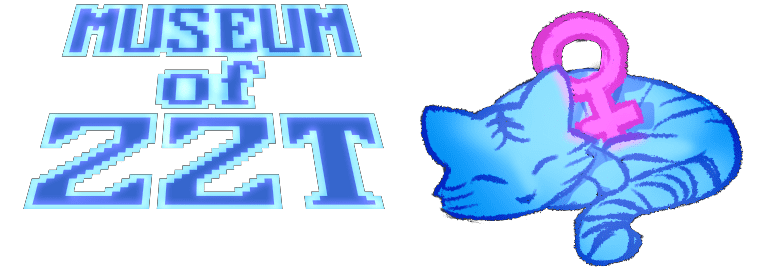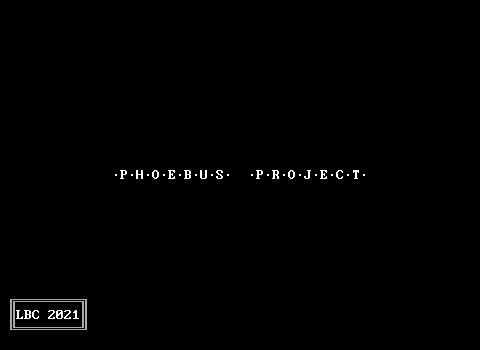2018 Overview
By 2018, there's some sort of revival going on in ZZT. It's just barely starting to show itself, but it's there. SaintZZT 8th releases on the very first day of the year, getting the question of whether or not there will be any new games out of the way instantly. In March, the very intriguing and unexpected release of The Zombinator captures the interest of all who see it. The game's text file tells the story of discovering ZZT in 2012, a time both so long ago by 2018 and yet so recent for ZZT games. Zombinator began its development then, ran into issues with board size limitations, and was promptly scrapped with attempts to recreate the idea in other more advanced mediums throughout the years until the concept was revisited in ZZT.
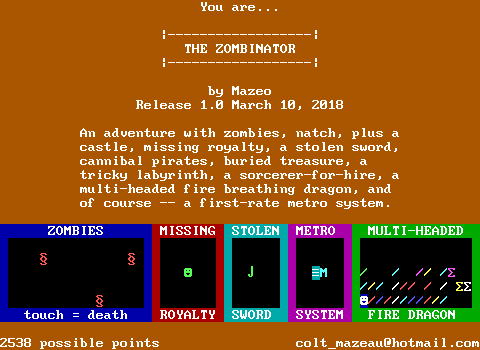
For a good sign that ZZT was making a return, consider that the game likely would have received far less attention had it come out in 2012, where being made outside of Glorious Trainwrecks, it would have landed with a thud onto z2's upload queue and remain unpublished until the Museum was created. I still remember The Zombinator's livestream, which just kept going and kept surprising us. It was saved from complete obscurity because it was delayed by six years.
In 2018 over on the Museum it also started to become apparent that "we have almost all the ZZT games" was not the most accurate belief. Asie was beginning to trawl archives and dig up forgotten worlds, alternative versions, and games which had never touched the mainstream community to begin with. That year I made sure when visiting family back home to descend into the basement and try and boot any old computers down there searching for ZZT games and anything else of interest. On the flight back home I made a story game called Window Fragments, talking about old programs and files I managed to dig up, getting very nostalgic for the early 2000s and my indunation into the ZZT community and online culture of the time.

The year also gave us several important releases by Rabbitboots. First with Maze Minders, a conversion of a Bitsy game of the same name to ZZT. If I ever needed evidence that ZZT was a viable medium for these storytelling games, having a Bitsy game translated to ZZT and still capturing its essence so well would be exactly the sort of thing I'd be looking for. Rabbitboots stole the show in 2018 with several great releases. Doodads 2018 was a collection of engine tests and various oddities worked on throughout the year, including an extremely clever conversion of Desert Bus to ZZT. It inspired me to create a similar release of my own in 2019 and encourage others to do the same, so it's safe to say that at least three releases in 2019 were because of Doodads.
Newt also made a return to the ZZT community in September releasing his first game since Glorious Trainwrecks took a stab at ZZT, Nibblin', a fantastic take on the classic game Snake for ZZT. That numerous folks with ties were returning after all this time away was a good sign of things to come.
Most Outstanding Title
Honestly the fact that The Zombinator didn't get the spotlight here is all you need to know that it was a good year for ZZT. As well crafted and creative as The Zombinator was, I feel like the true star of 2019 has to go to Rabbitboots's must-play puzzle adventure Faux Amis. Many more modern ZZT worlds strived to use ZZT's simplicity to earn some favorable looks with nostalgia and keep the time investment in actually finishing something down to more manageable levels. Faux Amis however is so superbly polished that it is an incredible example of how good a ZZT game can look if you do pull out all the stops and just pour your heart into creating something memorable.
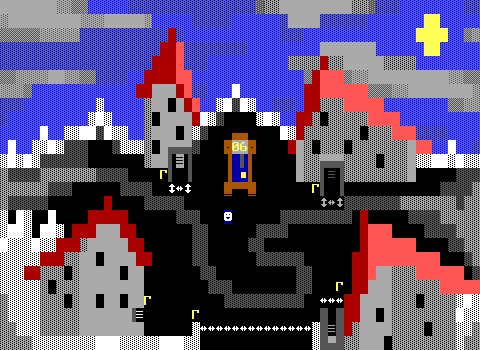
Faux Amis however doesn't merely just look good, as that blatant display of care and thought goes beyond just the superficialities of animations and effects and is just as well demonstrated throughout the game's puzzle design. Everything feels so well thought-out and utmost care is given to ensure that the player who finds themself stuck can always have the game acknowledge and reset things. When most games would be satisfied to slap a warning to save your game and call it a day, expecting players to just reload repeatedly, Rabbitboots demonstrates such friendliness towards the player and wants them to find the way through. A cast of quirky characters (my personal favorite is Amy) help give the mysteries of the island a personality. Really every component of the game works in tandem to make it an adventure to remember.
Release Breakdown
- New releases: 11
- New authors: 1
2019
Overview
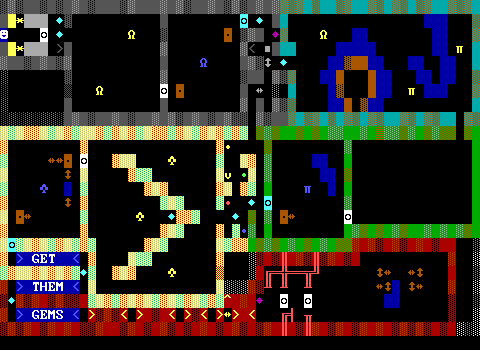
And finally we reach 2019, which is easily the most important year for ZZT in the decade by far. There's an small but active group on the Museum of ZZT Discord, people are collaborating and there are folks around offering feedback on works in progress. No longer is ZZT something you do quietly by your lonesome until it's time to publish. January starts strong with KKairos again publishing something, the fast-paced score attack Kerfuffle!, a game contained on a single board encouraging players to overcome its combat challenges without being hit to rack up a large score. In February I released The Unknowable Timothy Billings, a game I promised myself to finish over a weekend so as not to waste time when I should have been working on other things. T. Billings is a "horror" title about the investigation of an abruptly missing archaeologist who vanished from a South American dig site that uncovered something not meant to be seen. I've never been satisfied with the writing since I was literally trying to get it out as quickly as possible, but some people enjoyed it at least!
It's not merely the games that made 2019 so important, but also the work of Asie on Zeta. After more than 10 years of having to use DOSBox to play ZZT on a modern system and deal with all its troubles with getting ZZT to play as smoothly as it did on support hardware, the emulator designed solely for ZZT (and Super ZZT) absolutely changed they ZZT is used in such a fundamental way that it rivals KevEdit and Super Tool Kit for just how big a deal it is. ZZT is once more hassle free to play, runs better than ever, and can be easily embedded into a browser (without a rather cumbersome setup like Archive.org's DOSBox solution). Zeta elevates ZZT back to its former glory as a tool for making games with unparalleled simplicity. It has never been easier to make, share, and play ZZT worlds with others, and Asie's contribution to the community with this program is without a doubt the most important release of the year.
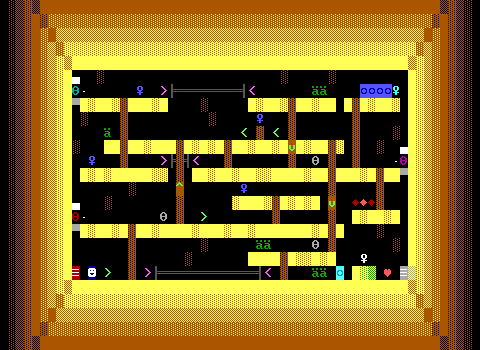
Back to the ZZT games themselves, an obvious contender for outstanding title appeared in March, with Darren Hewer of DosGames.com returning to ZZT with the most creative platformer I've seen in ZZT: Daedalus' Obelisk. The unique gameplay doesn't use the sort of platformer engine seen in games like Freak Da Cat or Sid's Disaster, but uses the standard ZZT player and enforces a side-view of boards by having invisible water above wherever the player can walk. The concept is pretty straightforward, but Hewer astounded folks with just how many unique ideas he was able to get out of the concept. (The gorgeous game map that stitches together so nicely certainly helped draw some eyes as well.)
I've found that the easiest way to finish a ZZT world is to make it as short as possible. In April I released the experimental joke of world Sisyphus, turning one of ZZT's greatest sins into an endless journey through a perpetual ping-pong path. Apparently some people thought it was meant to be a critical reaction towards my experience with playing WiL's Run-On, which uh, it's not. (Run-On goes on for too long, and Sisyphus uses a similar technique to produce its endless scrolling, but dang it's not like it was boring. Plus it was immensely more frustrating to play with DOSBox over Zeta.)
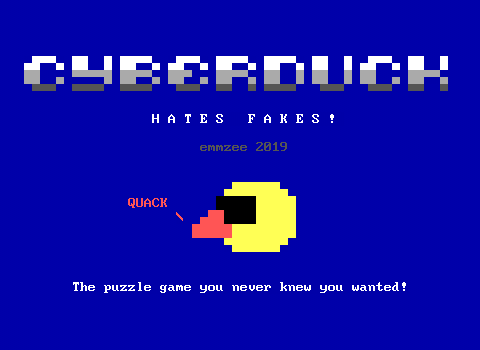
Not satisfied with Daedalus' Obelisk, Darren Hewer went for another two-for-one, releasing two simpler games, a puzzle world involving covering fakes with solids known as Cyberduck Hates Fakes and a conversion of the classic game Simon..
2019 also brought us a few updates. Existing older works like Faux Amis and BACONÇ 2 got re-releases with some bug fixes and tweaks. Historically, ZZT worlds rarely had attention given to updates. Part of this is just games being published and the author quickly moving on to newer and grander visions, though one thing that's been surprising with Asie's archive diving has been just how many worlds actually did get subtle updates over the years. Sometimes it's pretty clear there were extensive changes resulting in changed titles (like the "remix" editions of Jami's Undercity and Boof), but others have required more detailed comparisons to find the changes.
In the middle of Summer, Lancer X dropped what instantly claimed a spot of one of the best programmed games with the dungeon crawler For Elise. It quickly garnered attention from the new ZZT community for its incredible amount of code, with boards frequently hitting ZZT's memory limitations. What Evilstania had done in 2012 for the real-time dungeon crawl was done by For Elise with a unique turn-based setup, encouraging the player to think about how to approach a situation and let them take some calculated risks.
Between Obelisk and Elise, 2019 absolutely raised the standard for what a quality ZZT world looked and played like, but the year wasn't over yet. In September Zephyr brought us his own take on the action/puzzle genre with Yuki and the Space Show, which quickly captured everyone's attention with its lavish introduction sequence and extremely relatable storyline about Yuki's cat being abducted by aliens and having to compete in a deadly game show broadcast across the galaxy in order to rescue her. What Lancer's Elise did for code, Zephyr's Yuki did with charm. The game feels so committed to its aesthetics that every board will bring a smile to your face, typically followed by dismay as you realize what sort of obstacle you're expected to overcome this time.
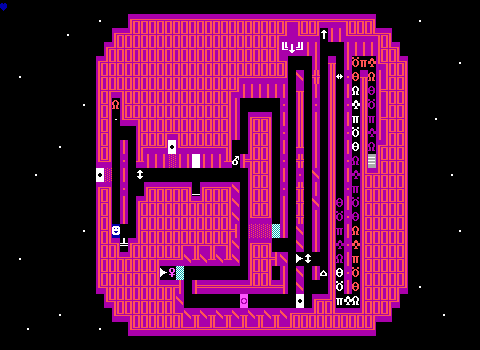
2019 refused to stop and even with these three excellent titles the year was far from over. KKairos who began the year with the ever impressive Kerfuffle! returned to his
earlier roots of experimenting with the art of procedurally generated content in ZZT. This resulted in the impressive randomized title Computer Dungeon Slash: ZZT. Despite CD Slash's
excellent coding, KKairos made it take a backseat to the actual gameplay.
A common criticism of many ZZT games built around engines is how often they wind up being a showcase for the engine without a fun game attached to it.
KKairos doesn't want the tech to steal the show and keeps the player in the dark by making the dungeons all take place on dark boards, using some wonderful musical compositions to distract the
player from all the #change commands that transform the dungeon into something playable. The music masks the sound effects associated with the destruction of elements
with stats on the board and the end result is that the player would hardly realize there was something complex working in the background at all were it not for the wait of actually generating
a level.
Lastly, to close out the decade we have the big December push. With such a big jump in the number (and quality) of titles compared to the start of the decade, the modern community was all holding out on some end of the year releases in hopes of getting as big a year out of ZZT as had been seen in so many years. This begins with Agent Orange releasing a collection of ZZT art he had been creating throughout the year and sharing with the Discord (with us all repeatedly asking to make a proper release of all of it) called Aorta 19. Absolutely flip through this one in the file viewer (and be sure to click scrolls for commentary). The art included in this collection is easily some of ZZT's best and puts Agent Orange up there with famed ZZT artists like Kracken and Zenith Nadir.
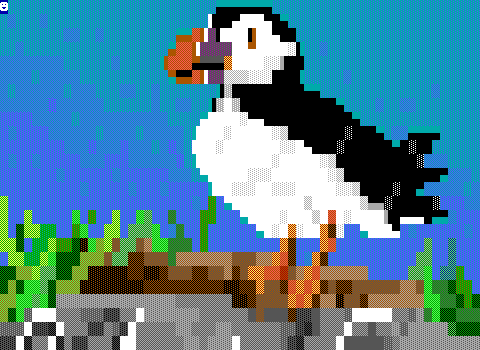
December and the decade draw to a close with six releases on the 30th and 31st of the month. These two days alone produced more uploads than the years 2013, 2014, or 2015. (And tied with 2016.) The bulk of it comes from titles inspired by Rabbitboots's earlier Doodads 2018, with myself releasing 2019, Rabbitboots establishing tradition with Doodads 2019, and Zephyr's own collection Z Lab 2019.
After years of not being actively developed and missing countless "It would be perfect to release this game on Halloween", I released Hugo's House of Horrors ZZT, a conversion of the classic MS-DOS adventure and ZZT's first world played with a text parser for input! By that point in time, the trick needed to make such a thing possible had gotten out.
Most Outstanding Title
Everybody (myself included) was far more interested on the seven-person collaborative effort Small Spaces, which had the illusion of taking place on a single board broken down into 24 easy pieces, with only one visible at a time. This game is a perfect example of what the modern ZZT community can accomplish and features numerous spaces throughout which are both technically impressive and quite challenging! That the final release for the year would be a large communal effort was the perfect way to close out the year and decade, ending on such a high-note that it really makes me wonder what we'll be seeing in 2020. 2019 is easily the best year for ZZT in well over a decade, constantly topping itself and showcasing more and more impressive games by talented developers.Release Breakdown
- New releases: 16
- New authors: 2
2020 Overview
There's still quite a way to go for 2020. Right now the game count is still low (unsurprising as everybody decided to finish their previous games in December), but more collaborative efforts are wrapping up, and the Joy of ZZT series is hopefully going to get us a few games in the near future. ZZT is thriving in a way it hasn't in so long, and I'm excited to see what comes out for the medium in these upcoming months. The 2010s were rather turbulent, but the latter years made it clear that ZZT is far from over and we have quite a bit to look forward to.
